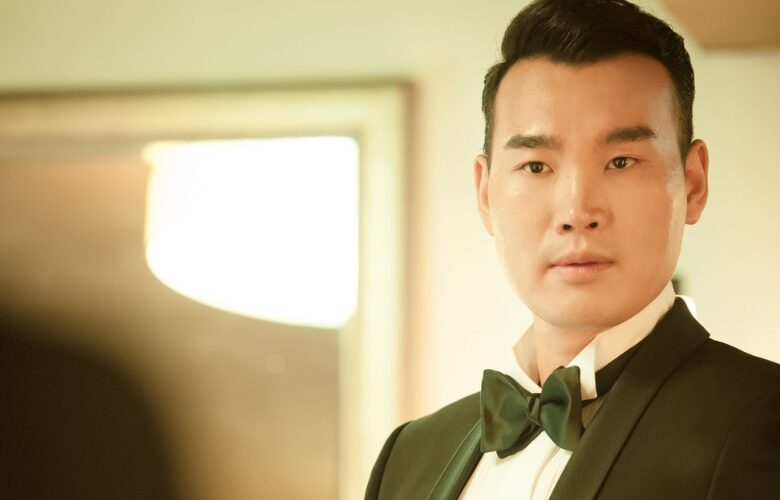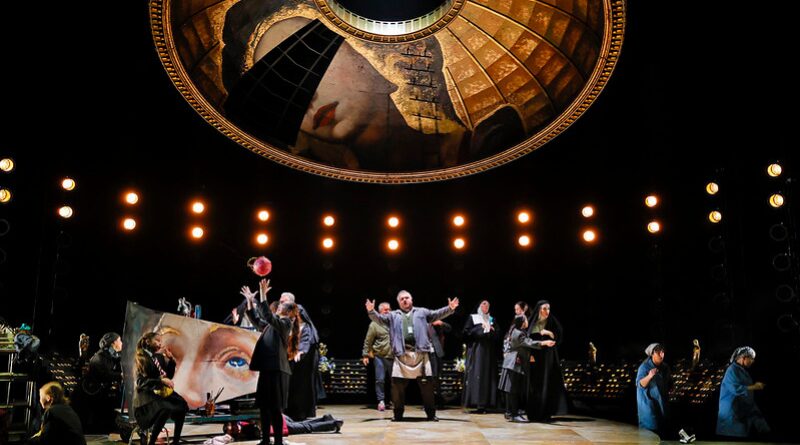Interview With Young Woo Kim

In this interview with Young Woo Kim, he talks about his life of growing up in South Korea and how since moving to Germany full time has influenced his Opera career as a Tenor. He has spent time studying various techniques across the world and has had the opportunity to perform in some of the largest Opera houses in the world. Young Woo Kim gives an inside look into his debut at Sydney Opera House as well as his upcoming title role of Faust.
Drew Janine: During your time at Chugye University of the Arts, did there ever feel like an obvious moment where you knew you would make it as a professional Opera singer?
Young Woo Kim: I couldn’t be certain that I would become an opera singer, but I never neglected to practise to make my dream come true.
DJ: How did your time at Chugye University of the Arts differ from your time at the Royal Irish Academy of Music?
YWK: In Korea, I was able to study vocal techniques. In Ireland, it felt like I learned how to convey emotional sound to people.

DJ: As you have performed internationally (namely inStaatsoper Hamburg,Garsington Opera UK, Opera Australia) did you notice any cultural differences that affected the Operas being performed?
YWK: In my opinion for Germany, the genre of classical music is akin to going out for a delicious meal. In the UK, I could see audiences enjoying opera with a sense of elegance. In Australia, I realised how much audiences love opera. The moment when they booed the singer playing the villain during the curtain call was quite striking.
DJ: During your time in the Garsington Opera in the United Kingdom, you were described as a ‘revelation’ by the Telegraph. Do you have any thoughts as to what contributed towards your success at a younger age?
YWK: Working for over three years in small roles at the Cologne Opera House, observing the singing styles and problem-solving methods of lead singers from behind the scenes, was a tremendous gift. Above all, learning from my mentor Veronica Dunne in Ireland about how to approach music led to great results.
DJ: You recently made your Australian debut only last month in May, asCavaradossi in Tosca. What were some of your most notable memories from performing in that Opera?
YWK: Although every moment was precious and unforgettable, the most memorable for me was receiving applause from the Australian audience. They gave me such warm love.

Karah Son as Tosca and cast in Tosca at Margaret Court Arena 2024.
Photo Credit: Jeff Busby.
DJ: Are you nervous about making your Sydney Opera House debut and what are you doing to prepare for such a momentous occasion in your career?
YWK: I have a beautiful sense of excitement. Everything I do—eating, resting, praying—is for my performances. I want to turn first-time attendees into opera fans and give opera enthusiasts a night they will never forget.
DJ: Before making your professional debut, what were some early roles that inspired you to get into Opera?
YWK: I remember playing a fairy in a children’s opera in Germany. It was more about acting and delivering lines than singing, and it required a lot of energy, focus, and expressiveness to captivate young audiences. I think those moments have shaped where I am today.
DJ: You are also about to perform the title role in Faust at Cologne Opera. How are you expecting this to be different from other roles you have performed in for the Cologne Opera?
YWK: I have already performed the role of Faust at the Cologne Opera House. Every role is challenging, but Faust was particularly tough. My voice is a bit heavy for Faust. However, it was an invaluable time to refine my technique.

Andrew Moran as Sacristan, the Opera Australia Chorus and Opera Australian Children’s Chorus in Tosca at Margaret Court Arena 2024.
Photo Credit: Jeff Busby.
DJ: Since moving to Germany full time, do you get to go back to South Korea often and are you still influenced in any way by the culture of the different artistic styles?
YWK: The main reason I often visit Korea is to meet with my family. Actually, I haven’t performed in Korea for about ten years. In Korea, performances are typically set up a year or six months in advance, whereas in Europe, they are planned one or two years ahead, so the timing doesn’t match up for opportunities. Having been in Europe for so long, I feel more comfortable there than in Korea.
DJ: Is there anyone you would like to thank who helped you across your career?
YWK: Many people have helped me, but I want to express my deepest gratitude to my teacher and grandmother Veronica Dunne, who is now in heaven.
All pictures courtesy of Opera Australia.
Back to Home
Editor's Note: At StageLync, an international platform for the performing arts, we celebrate the diversity of our writers' backgrounds. We recognize and support their choice to use either American or British English in their articles, respecting their individual preferences and origins. This policy allows us to embrace a wide range of linguistic expressions, enriching our content and reflecting the global nature of our community.
🎧 Join us on the StageLync Podcast for inspiring stories from the world of performing arts! Tune in to hear from the creative minds who bring magic to life, both onstage and behind the scenes. 🎙️ 👉 Listen now!
